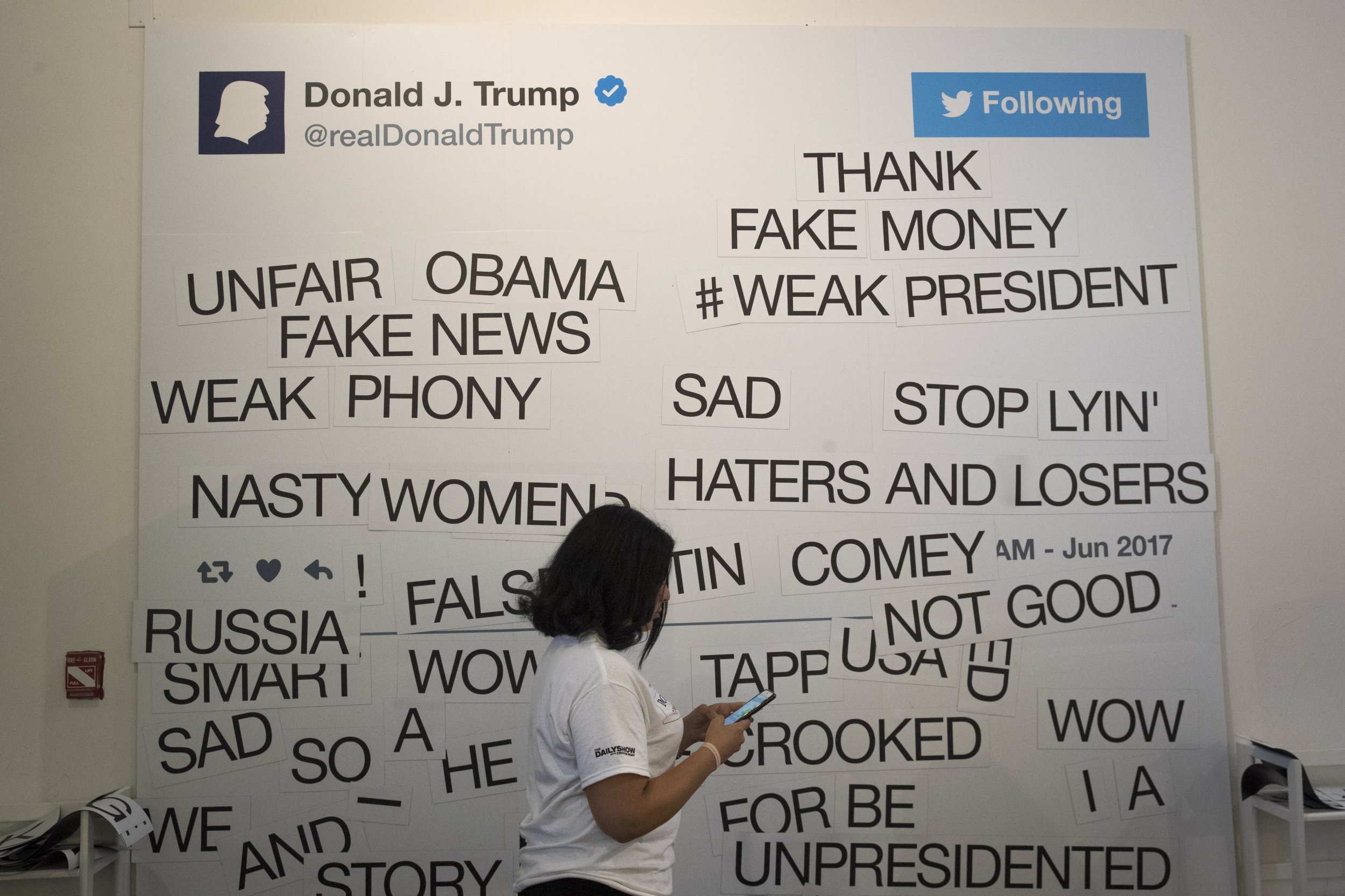
Exactly one year has now passed since Donald Trump shocked much of the country by defeating Hillary Clinton to become the 45th president of the United States. For the man at the center of that night on November 8, 2016, though, time has barely moved on at all. At least judging by his Twitter feed.
Related: Trump's election promises, both broken and kept
Trump has tweeted 268 times about the election or Clinton in the year since he became president, meaning that, on average, he has tweeted about it on three of every four days. It reinforces the extent to which, rather than addressing health care or tax reform or any other legislation he has so far failed to get through Congress, much of his time on the medium he values most to get messages to voters has been spent returning to events of 12 months ago.
Trump's onslaught of tweets has been far from one long victory parade, with the president repeatedly going on the defensive over the merits of his unexpected triumph.
The tone was set just over 24 hours after the reality of his win dawned, when he lambasted as "very unfair" the "professional protesters" who took to the streets in the millions to denounce his election.
Just had a very open and successful presidential election. Now professional protesters, incited by the media, are protesting. Very unfair!
— Donald J. Trump (@realDonaldTrump) November 11, 2016
Trump's victory in the Electoral College had been confirmed in the early hours of November 9, but in the days following the election, as votes continued to be counted, Clinton's margin of victory in the popular vote kept creeping up, eventually reaching almost 3 million. It was a reality that Trump never fully seemed able to process
Almost immediately, he began to question the result, trumpeting the merits of the Electoral College and claiming, without any evidence, that 3 million to 5 million people had voted illegally. He similarly suggested that the popular vote was far from a fair metric of judging popularity. After all, he said, if the election had been decided on that basis, he would have campaigned in Democratic strongholds like New York and California. (He did not address the fact that Clinton would then have done the same in red states like Texas.)
The Electoral College is actually genius in that it brings all states, including the smaller ones, into play. Campaigning is much different!
— Donald J. Trump (@realDonaldTrump) November 15, 2016
If the election were based on total popular vote I would have campaigned in N.Y. Florida and California and won even bigger and more easily
— Donald J. Trump (@realDonaldTrump) November 15, 2016
Trump's defensive posture continued as the specter of Russia's role in the election began to take prominence and, in Trump's mind at least, called into question the legitimacy of his presidency. Trump swiftly concluded that the investigation was without substance and labeled it an excuse peddled by Democrats for their party's shocking loss, even as the FBI and others began to deepen their investigations.
Rather than dampening the Russia talk, Trump threw flames on it by firing FBI Director James Comey. He then sparked further commotion when suggesting in a tweet—that he had taped his conversations with the bureau's chief.
While dismissing the Russia investigation, Trump regularly attempted to divert attention from the probe, most commonly by suggesting his rivals had acted inappropriately. Notably, there was the unfounded claim that President Barack Obama had wiretapped his phones.
Terrible! Just found out that Obama had my "wires tapped" in Trump Tower just before the victory. Nothing found. This is McCarthyism!
— Donald J. Trump (@realDonaldTrump) March 4, 2017
Even as the one-year anniversary of his win approached, Trump couldn't help but return to the subject under than less than glorious circumstances. As the first indictments in special counsel Robert Mueller's probe emerged, Trump seized on less than substantive stories about Clinton and Russia, as well as a certain dossier.
The real story on Collusion is in Donna B's new book. Crooked Hillary bought the DNC & then stole the Democratic Primary from Crazy Bernie!
The real story on Collusion is in Donna B's new book. Crooked Hillary bought the DNC & then stole the Democratic Primary from Crazy Bernie!
— Donald J. Trump (@realDonaldTrump) November 3, 2017
Trump, of course, is not alone in his obsession with the events of 12 months ago. Books continue to be published from both the Democratic and Republican perspectives, and an investigation into what exactly went on during that seemingly interminable campaign remains ongoing.
But, even in victory, Trump can't see to move on. Now with 280 characters in his arsenal, he has even greater ammunition to fire at the election that never truly ended.
Uncommon Knowledge
Newsweek is committed to challenging conventional wisdom and finding connections in the search for common ground.
Newsweek is committed to challenging conventional wisdom and finding connections in the search for common ground.
About the writer
Jason Le Miere is from the British island of Jersey, which has absolutely no relation to the Garden State, other than ... Read more
To read how Newsweek uses AI as a newsroom tool, Click here.








